Book review: Iran from a new Indian perspective
In the absence of a debate in India on Iran’s nuclear programme, ‘Troubling Tehran' is a significant first attempt to go beyond Western narratives and ask pertinent questions
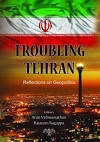 Courtesy: Pentagon Press
Courtesy: Pentagon Press
In the absence of a debate in India on Iran’s nuclear programme, ‘Troubling Tehran' is a significant first attempt to go beyond Western narratives and ask pertinent questions
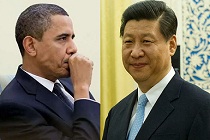 Courtesy: Systemman, Erin A. Kirk-Cuomo/Wikimedia Commons
Courtesy: Systemman, Erin A. Kirk-Cuomo/Wikimedia Commons
The U.S. government shutdown and President Obama’s absence gave China immense diplomatic and political space at the APEC and East Asia Summit meetings. China’s declaration of a “de-Americanised” world may be premature but the crumbling old order is doing little to dispel this notion
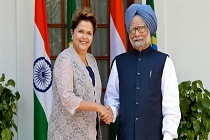 Courtesy: Roberto Stuckert Filho/Wikimedia Commons
Courtesy: Roberto Stuckert Filho/Wikimedia Commons
In 'India-Latin America Engagements', the Latin America Desk at Gateway House presents a selection of news of India’s engagement with the region during the previous month
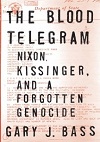 Courtesy: Knopf
Courtesy: Knopf
In ‘The Blood Telegram’ Gary Bass jolts us into recalling one of the most horrific genocides of the last century that occurred during the creation of Bangladesh
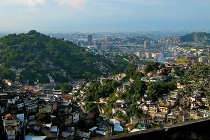 Courtesy: @Doug88888
Courtesy: @Doug88888
Gateway House’s Akshay Mathur recently visited Brazil to attend a BRICS-themed conference, organised by the National Association of Research and Graduate Programs in the Social Sciences. In this blog, he writes about his first impressions of the country and the similarities between India and Brazil that he observed.
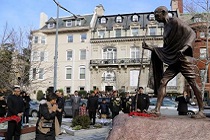 Courtesy: Indian Embassy, Washington D.C.
Courtesy: Indian Embassy, Washington D.C.
This daily column includes Gateway House’s Badi Soch – big thought – of the day’s foreign policy event. This Badi Soch analyses the implications of revelations about surveillance on Indian missions, by the U.S. government.
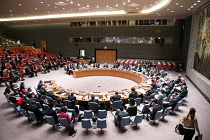 Courtesy: United Nations
Courtesy: United Nations
The recent UNSC Resolution, which mandates the complete destruction of Syria’s chemical weapons, demonstrates that after more than a year, a degree of international agreement on the Syrian issue has been possible. In the evolving situation, Russia will now emerge as a major player
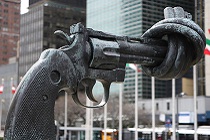 Courtesy: United Nations ESCAP
Courtesy: United Nations ESCAP
Rajni Bakshi, Senior Gandhi Peace Fellow, Gateway House, delivered a lecture at the ‘International Day of Non-Violence’ at the UN Convention Centre in Thailand, on October 2. In her lecture, she spoke about the significance and the greater potential of non-violent means in achieving the goals of today’s world.
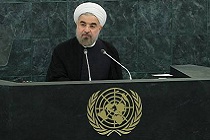 Courtesy: Office of the President of Iran
Courtesy: Office of the President of Iran
In recent days, both the U.S. and Iran have intimated that they seek a broad improvement in relations, signalling a welcome thaw in bilateral ties. What does this mean for Tehran and Washington, and more importantly, how will this development play out in the West Asian region?
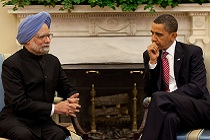 Courtesy: Pete Souza/Wikimedia Commons
Courtesy: Pete Souza/Wikimedia Commons
Since 2009, distraction and dysfunction in India and the U.S. resulted in low enthusiasm vis-à-vis bilateral ties. Indian Prime Minister Manmohan Singh, who met U.S. President Barack Obama, prior to the UNGA, had one last chance to salvage India-U.S. ties before the country goes to elections in 2014. Did he succeed?